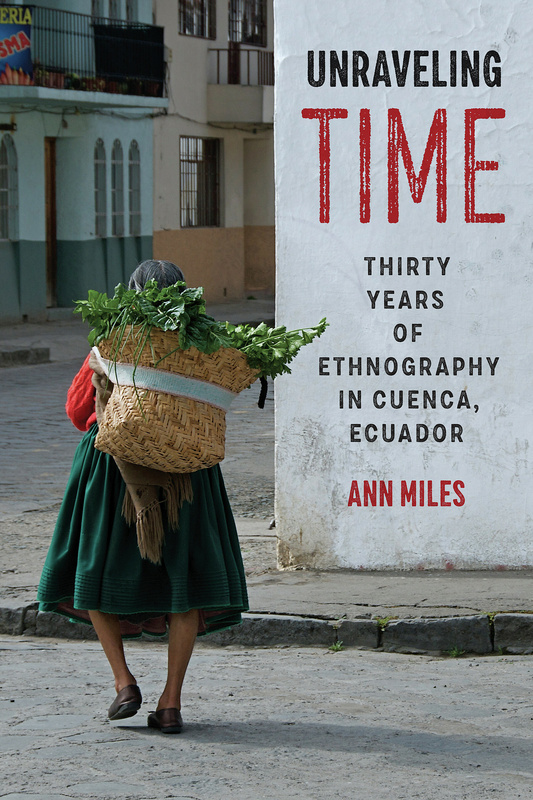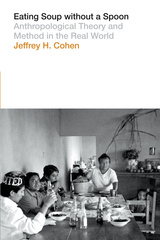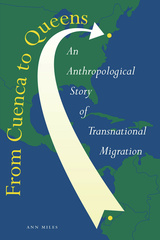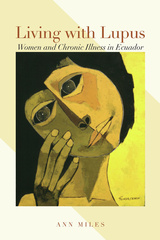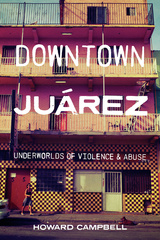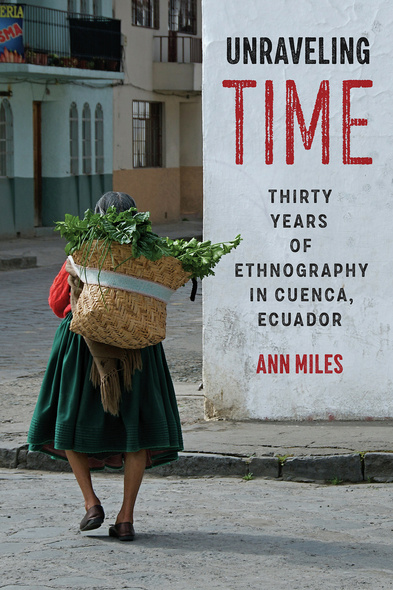
Unraveling Time
Thirty Years of Ethnography in Cuenca, Ecuador
Ann Miles has been chronicling life in the Ecuadorian city of Cuenca for more than thirty years. In that time, she has witnessed change after change. A large regional capital where modern trains whisk residents past historic plazas, Cuenca has invited in the world and watched as its own citizens risk undocumented migration abroad. Families have arrived from rural towns only to then be displaced from the gentrifying city center. Over time, children have been educated, streetlights have made neighborhoods safer, and remittances from overseas have helped build new homes and sometimes torn people apart. Roads now connect people who once were far away, and talking or texting on cell phones has replaced hanging out at the corner store.
Unraveling Time traces the enduring consequences of political and social movements, transnational migration, and economic development in Cuenca. Miles reckons with details that often escape less committed observers, suggesting that we learn a good deal more when we look back on whole lives. Practicing what she calls an ethnography of accrual, Miles takes a long view, where decades of seemingly disparate experiences coalesce into cultural transformation. Her approach not only reveals what change has meant in a major Latin American city but also serves as a reflection on ethnography itself.
Unraveling Time shows the anthropologist working on her craft. Through long-term, sensitive ethnography, Ann Miles captures the passing of time and the texture of change. She reveals her Cuencan partners as men and women grappling with economic shocks, a city transformed by migration, and the drama of sustaining transnational family ties. With her careful observations, Miles shows how they find meaning in all that has happened over the decades. It's a wonderful work of ethnographic reflection.
A thoroughly engrossing examination of gender, migration, and the evolving sociopolitical landscape of Cuenca, Ecuador, over the last three decades. With the attention, deep insight, and kinship with her interlocutors that can come only from long-term ethnographic engagement, Ann Miles introduces us to the complicated lives of the women and men she has followed for years. Through the sensitively told stories of these Cuencanos, we come to understand both the important (and conflicting) ways that transnationalism has shaped an entire country and the approaches through which one anthropologist has tried to make intellectual and emotional sense of a lifetime of ethnographic accruals. A superb book and must a read for scholars of transnationalism, Latin American migration, and gender in South America.
This book joins a growing number of ethnographies by authors who reflect on their field work and research, grappling with the dynamic nature of temporal-spatial interactions that proceed apace as ethnographers and their interlocutors continue making their own histories and cultures far beyond the life of the anthropologist.
Miles’s engaging prose makes the reading of this book not only informative but also highly enjoyable. . . . Reflecting on the arbitrariness of endings over time, Miles concludes an outstanding book whose ending, I hope, is just for the time being.
A rare intellectual gift...To learn with and about Miles’ ethnographic work in Cuenca, Ecuador, over the last three decades is a wonderous time travel experience.
Ann Miles is a professor of anthropology and the director of the University Center for the Humanities at Western Michigan University. She is the author of From Cuenca to Queens and Living with Lupus.
- Acknowledgments
- Chapter 1. The Ethnography of Accrual: 1988–2020
- Dateline 1990: Remembering and Forgetting
- Chapter 2. Making a Cosmopolitan City
- Dateline 1988–1989: The Virgin of Cajas
- Chapter 3. Single Women in the City
- Dateline 1988–2020: Alejandra
- Chapter 4. Ni de Aqui, Ni de Allá
- Dateline 1988–2020: Blanca
- Chapter 5. The Gringo Invasion
- Dateline 2015–2019: Soon the Tourists Will Have the Place to Themselves
- Chapter 6. Thinking about Endings
- Notes
- References
- Index

